Real Estate Terms You Should Know When Buying or Selling A Home
Real estate is full of confusing vernacular that can be overwhelming in an already stressful process. Whether you’re buying or selling a home, it’s important you’re up to date on the most used real estate terminology.
Below, we have put together a list of popular real estate terms that can help you better understand the process of buying or selling a home in Panama City and beyond!
General Real Estate Terms
- As-is indicates that the seller is unwilling to perform most if not all repairs. It could also mean that it is priced “as is”, which is typically lower than market pricing in the area.
- Buyer’s Agent, also known as a selling agent, is a licensed real estate professional whose job is to locate a buyer’s next property, represent their interests by negotiating on behalf of that buyer to obtain the best price and purchasing scenario for that buyer as possible. This agent is a fiduciary for the buyer.
- Listing Agent, also known as the seller’s agent, is a licensed real estate professional whose job is to market the seller’s property, and to represent the seller’s best interest by negotiating on behalf of the seller to secure the best price and selling scenario as possible. This agent is a fiduciary for the seller.
- Closing is when the home sale is considered final, which typically includes all parties’ signatures on all required documents, all monies conveyed, and when a lender is involved, with full lender’s approval.
- Closing Costs are an assortment of fees, including fees charged by: a lender, the title company, attorneys, insurance companies, taxing authorities, homeowner’s associations, real estate agents, and other closing settlement related companies. These closing costs are typically paid at the time of closing a real estate transaction.
- An Escrow Holder is the agent and depositary (impartial third-party) who collects the money, written instruments, documents, personal property, or other things of value to be held until the happening of specified events or the performance of described conditions, usually set forth in mutual, written instructions from the parties.
- A Homeowner’s Association (HOA) is a private association that manages a planned community or condominium. When you purchase a property that is managed by an HOA, you agree to abide by the HOA’s rules and pay its monthly or annual HOA dues. If you fail to pay and/or comply, they often have the ability to file a lien against the property and/or foreclose on the property.
Listing & Property Information
- A Conventional Sale is when the property is owned outright (has no mortgage remaining) or the owner owes less on their mortgage than what the market indicates the owner could sell their property for.
- Short Sale is when the property is being sold for less than the debt secured by the property. Short sales will require the approval of the seller’s lender(s) as the proceeds of the sale will be just “short” of the amount owed; most lenders’ processes of approving short sales are long and drawn out, requiring more time to close than a traditional sale.
- Probate Sale happens when a homeowner dies without writing a will or leaving a property to someone. In such situations, the probate court would authorize an estate attorney, or other representative, to hire a real estate agent to sell the home.
- Real-Estate Owned (REO) is a designation given to properties which are owned by a lender due to an unsuccessful foreclosure sale at auction. REO properties can sometimes present an opportunity for a buyer to be purchased for below market value as most banks would prefer to reinvest the proceeds, rather than waste time marketing the property for an extended period.
Financial & Documentation
- Adjustable-Rate Mortgage (ARM) interest rates can change after an initial fixed rate period as they adjust based on the interest rate index the ARM is tied to (e.g., LIBOR, COFI, etc.).
- Debt-to-income, or DTI, ratio is a number used by mortgage lenders which is determined by the total of your debt expenses, plus your monthly housing payment, divided by your gross monthly income and multiplied by 100. This helps lenders determine affordability based on their available loan programs and allows them to estimate how much you can afford to pay monthly for a mortgage.
- Equity is the investment a homeowner has in their home. To calculate equity, take the market value of the home and subtract any mortgages or liens against the property. The amount leftover is the amount of equity you have in the home.
- Fixed-Rate Mortgages, your interest rate stays the same for the duration of the loan. They are often available as 10, 15, 20 & 30-year loans.
- Purchase and Sale Agreement (PSA) is commonly referred to a written contract between the buyer and seller, which outlines the terms of the parties to sell and purchase real property.
- A Seller’s Disclosure is a disclosure by the seller of information about the property, or which could affect a buyer’s decision to purchase the property, all of which to the best of the seller’s knowledge.
Offers & Contingencies
- Appraisal – required to gather the estimated value of a piece of real estate. During the home sale, the mortgage lender sends out an appraiser to get a professional opinion of the value of the property. This helps the lender decide if the property is worth the amount of the loan the potential buyer is seeking.
- Blind Offer – When a buyer makes an offer on a property they haven’t seen, even when it was possible to see it, that offer is considered a “blind offer”. It is most commonly used in a highly competitive area and/or circumstance and used as an attempt to be first and win quickly.
- A Home Sale Contingency is for a buyer to indicate to a seller that part of their condition to purchase the seller’s property relies on the buyer’s ability to finalize a close on their current property. This is often negotiated with a clause in a contract or with an addendum to a contract. An example of how such a contingency can be used would be if a buyer needs to sell their property in order to have the down payment required on the purchase of the new property, or would rather use their sale proceeds instead of their savings to make the down payment.
- An Inspection happens when buyers pay a licensed professional inspector to visit the home and prepare a report on its condition and any needed repairs. The inspection often happens as part of the due diligence period, so buyers can fully assess if they want to buy a particular home as is, or ask the seller to either complete or pay for certain repairs.
- Seller Concession – Sellers may offer concessions to incentivize buyers to purchase the home, or sweeten the deal.
- A Title Search examines public records for the history of the home, including sales, purchases, tax, and other types of liens.
Real Estate is an ever-growing industry! Our team at Coldwell Banker Carroll Realty will continue to update our list of real estate terms to better serve you. Our local agents will make sure you are in the know when buying or selling a home with us. We have experienced real estate professionals throughout 30a, Panama City, and Panama City Beach ready to help! Contact any of our Coldwell Banker Carroll Realty offices to get started today.
